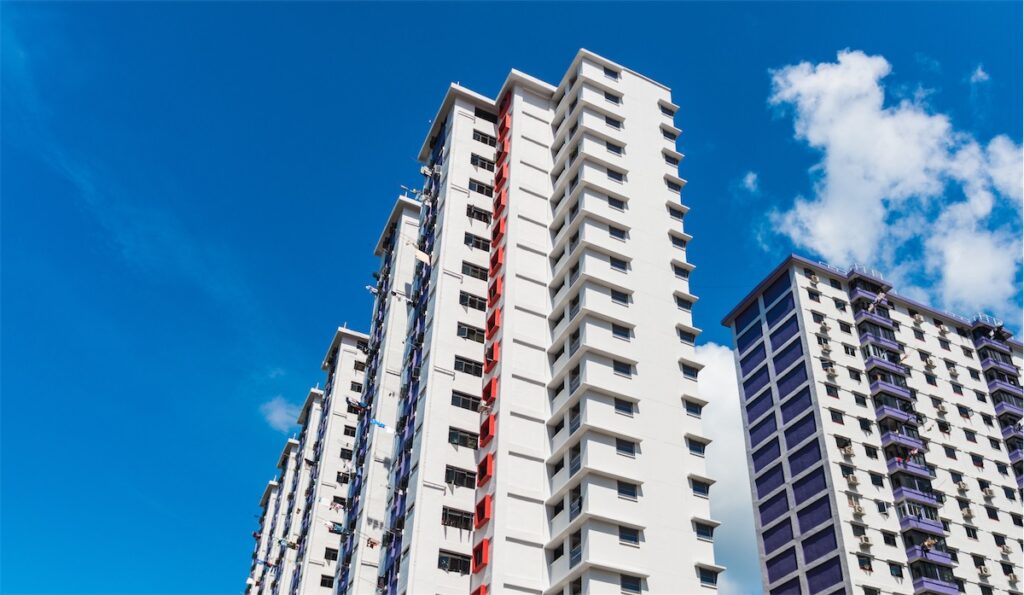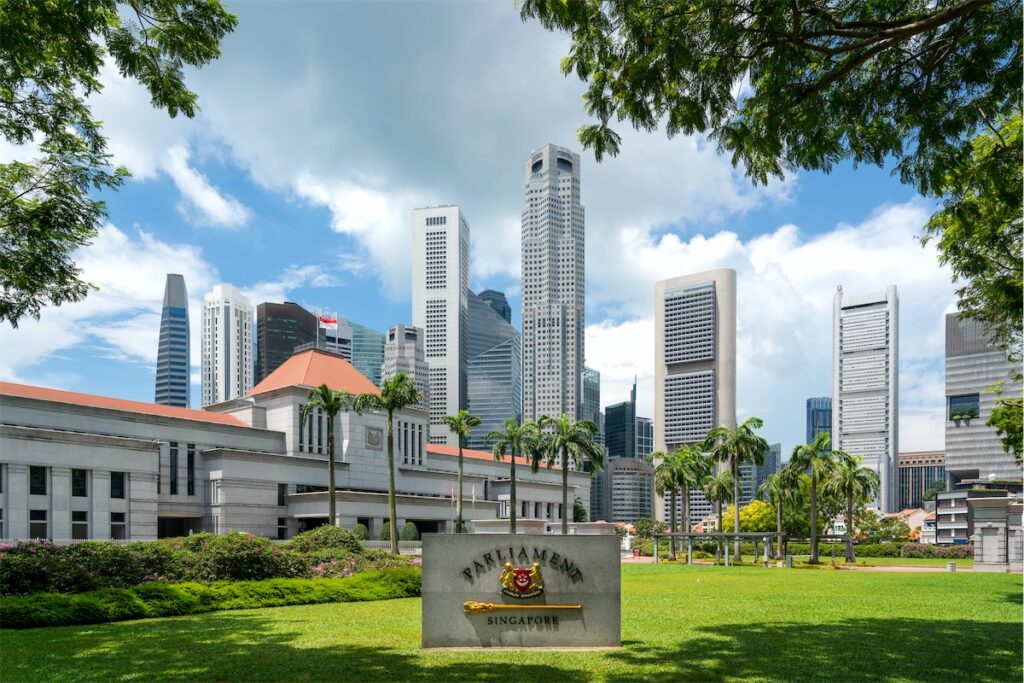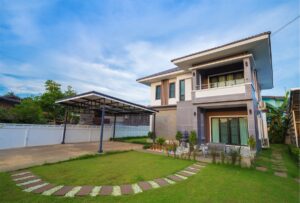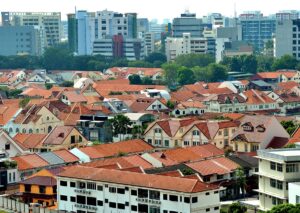Two weeks ago, Finance Minister Lawrence Wong outlined the Singapore Budget 2022 in Parliament. While Budget 2022 is intended to ease Singaporeans’ concerns about the rising cost of living, the property market is one sector directly affected by these measures – further adding to a series of mounting costs for Singapore investors and landlords.
Taking a look at Budget 2022, these are the two of the key areas that will have an immediate impact on the property market: 1) Increased tax rates on residential properties, and 2) Increases in GST.
Other areas discussed like the plans for more electric vehicle charging points in residential areas, an increase in utility costs, and adjustments to foreign work policies are also worth noting as they could change the property market.
Let’s look at what Budget 2022 has in-store for Singapore’s property market and the possible impact.

Increased Property Tax rates for residential properties
Based on the Annual Value (AV), property tax will be revised based on the Annual Value (AV) of the property, affecting both owner-occupied and non-owner-occupied residential properties.
AV is based on the estimated annual rental income determined by the Inland Revenue Authority of Singapore (IRAS). While the majority of HDB homes in Singapore will not reach an AV of S$30,000 (with most averaging below S$10,000), we would see a more significant impact on properties at the high end.
Owner-occupied residential property
Homes with annual values of less than S$30,000, such as HDB flats and condos, as well as landed properties in the suburbs, are not affected by the hike in property taxes.
Property taxes will, however, be revised for the portion of annual value over S$30,000.
The following table shows the revised tax rate for owner-occupied residential property:
| Annual Value | Tax rate w.e.f 1 Jan 2023 | Tax rate w.e.f 1 Jan 2024 |
| First $8,000 | 0% | 0% |
| Next $22,000 | 4% | 4% |
| First $30,000 | – | – |
| Next $10,000 | 5% | 6% |
| First $40,000 | – | – |
| Next $15,000 | 7% | 10% |
| First $55,000 | – | – |
| Next $15,000 | 10% | 14% |
| First $70,000 | – | – |
| Next $15,000 | 14% | 20% |
| First $85,000 | – | – |
| Next $15,000 | 18% | 26% |
| First $100,000 | – | – |
| Above $100,000 | 23% | 32% |
Non-owner occupied residential property
In general, all non-owner-occupied residential properties, including investment properties, will face higher taxes of 12% to 36%, up from 10% to 20% currently. The increase will be most pronounced for properties at the top end of the market.
From 2023 onwards, non-owner occupied property tax rates will also be reduced to the following 3 tiers:
| Annual Value | Tax rate w.e.f 1 Jan 2023 | Tax rate w.e.f 1 Jan 2024 |
| First S$30,000 | 11% | 12% |
| Next S$15,000 | 16% | 20% |
| First S$45,000 | – | – |
| Next S$15,000 | 21% | 28% |
| First S$60,000 | – | – |
| Above S$60,000 | 27% | 36% |
GST Hike
Goods and Services Tax (GST) will also be increasing from 7% to 9% in incremental stages:
- Increase to 8% on 1 January 2023
- Increase to 9% on 1 January 2024
As for the property front, residential properties sold or leased are exempt from GST, while non-residential properties are subject to GST if owned by a GST registered entity. In the case of properties consisting both of residential and non-residential parts, the non-residential portion is liable for GST.
Additionally, GST applies to movable furniture and fixtures. So buyers and renters can expect a hike in prices for furnished properties due to the increased GST charges.
Similarly, commissions paid to property agents are subject to GST so long as the property is located in Singapore and the estate agent is GST-registered.
Increase in utility costs
In order to achieve net-zero emissions by 2050, carbon tax will increase, which translates into higher utility costs, such as electricity bills, power, water, waste disposal etc.
| Unit | 2022 | 2024/2025 | 2026/2027 | 2030 |
| Per tonne | S$5 | S$25 | S$45 | ~S$50 – S$80 |
Adjustments to Foreign Worker Policies
To reduce the reliance on foreign workers in construction and process sectors, and improve productivity, the government will tighten foreign workforce quotas.
From September 2022, the minimum qualifying salary for incoming foreign workers are as follows:
- Employment Pass (EP) holders will be raised from S$4,500 to S$5,000, with those in the financial sector raising from S$5,000 to S$5,500.
- S-Pass holders will be raised from S$2,500 to S$3,000, with those in the financial sector raising to S$3,500.
The salaries for these qualifying positions will be reviewed and increased in September 2023 and 2024. Tier 1 levies will also be gradually increased from the current S$330 to S$650 by 2025.
Work Permit workers, especially in the construction and process sectors, are going to be able to benefit from a new Levy Framework effective January 2024 to encourage companies to support more offsite work and employ highly skilled workers.

How does Budget 2022 affect the property market, homeowners, investors, landlords and renters?
A potential uptick in rental rates
Rising property taxes, along with interest rate hikes affecting mortgage rates, there will likely be an uptick in rental rates.
Moreover, with GST applicable to movable furniture and fixtures, you can expect a hike in prices for furnished properties, either purchased or rented.
Ms Christine Sun, Senior VP of Research and Analytics at Orangetee & Tie said: “It may be possible that landlords try to pass on the costs to tenants for the centrally located condos and landed properties, as the increase in property tax is quite significant for this segment.”
Decrease pool of potential foreign tenants
Having the new adjustments to foreign work policies mean that foreign tenants will have to earn a greater qualifying salary to keep their work permits and work passes.
In the event that their employers do not increase their salaries to meet the revised quota, they may lose their right to stay in Singapore.
As a landlord, this may inadvertently reduce your pool of foreign tenants.
New features for future homes
As well as increasing carbon tax, Singapore’s aim to phase out internal combustion engines (ICE) and switch to Electric Vehicles (EV) by 2040 will also lead to more charging stations being built closer to residential areas, which is expected to speed up the adoption of EVs.
The future will see charging points become an essential part of households or an attractive selling point for properties. Investors and landlords might want to look into buying homes near charging points or install one to appeal to potential homeowners and renters in the future.
What are your next steps?
With the increased taxes and impending interest rate hikes, it’d be best to be prudent and consider what you are paying for.
Learn how to be prepared for rising interest rates in 2022/2023 here
Contact us for a free, no-obligation consulting session and let’s discuss how you can restructure your finances and property plans in light of the new changes.







